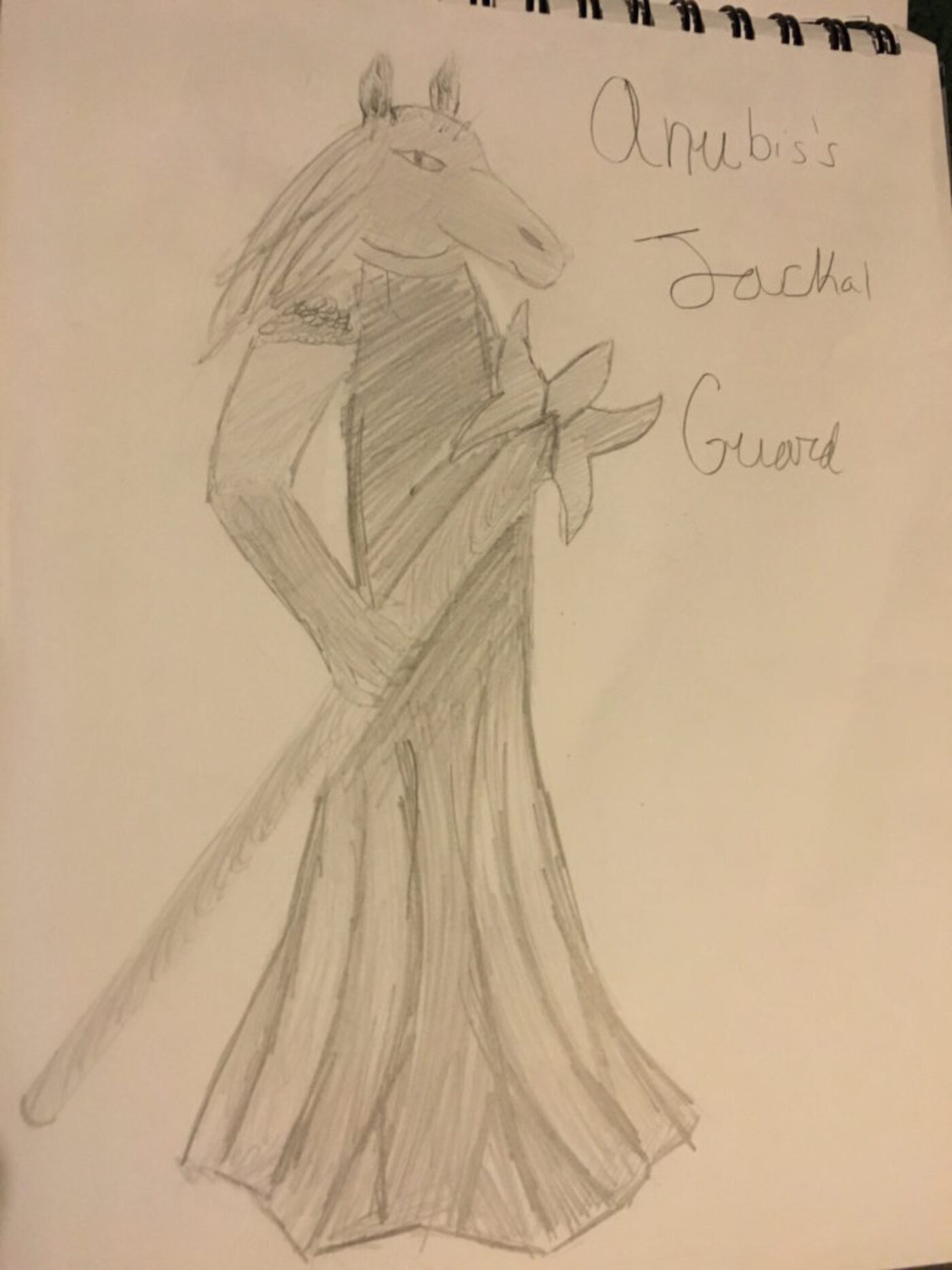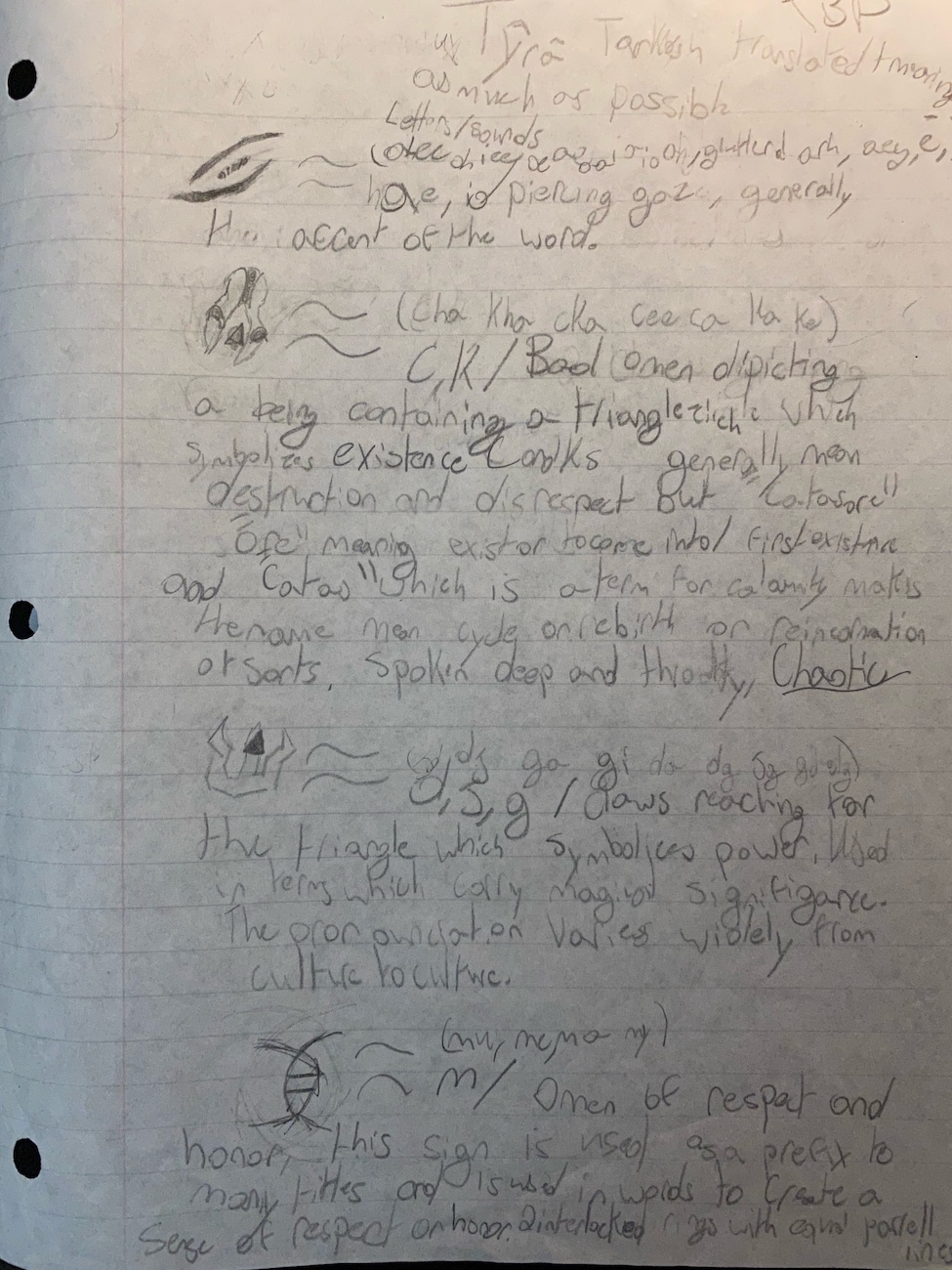Egyptian Influences
I'm a bit of a history buff. Egypt was one of my first interests and because of that the series has a variety of Egyptian influences sprinkled throughout it.
Religion is a large point where I draw from Egyptian mythology. A few of the Gods in the pantheon of my series are Egyptian in origin. Ra. Osiris. Isis. Anubis. And so on. They function similarly to their Earth counterparts, but with my own take on them, of course. My own spin and madness thrown at them to make them fully my own interpretation. My mind's eye picture of them is kind of the same as how the Egyptians saw them. The Scion's of Anubis, Anubis's guards, basically, look like the typical depictions of Anubis.

But that is just for the pantheon of Gods. There are other parts of Egyptian mythology and philosophy that I was inspired from. One of them is the Egyptian parts of being, which are the heart, shadow, name, soul, will, more divine/ethereal soul part, a lesser soul, and a body. There are many ways of interpreting them.
I took the idea of many abstract parts of being and transformed them into my parts of being. The Anore, the Kharat, the Neraq, the Am, and the Vacore. Existence, soul, mind, heart/love, and body, in the order of importance that exists in Buhukiea. It is a very liberal influence, but I cannot say I wasn't inspired by the Egyptian concepts of body and soul and general being.
So that is some Egyptian influences for religion. That is not it for the amount of Egyptian influences that lay peppered and spread throughout my work.
There is also the historical influences I wove into the world. The obvious one, the one that stands out in the very first chapter of the series, is Nefertiti. Nefertiti Magayak, princess of Magaya, who is also the Nefertiti of Earth's Egyptian history. She was a tourist before tourism was cool. As for why her name is the same---'Egyptian' names are Magaya names. Haeihlseth has a more Empirian name, which is why he switched to more traditional name when touring on Earth.
And what was Haeihlseth's name, do you ask?
Amenhotep. Or, alternatively, Akhenaten. Also known as the Egyptian Pharaoh known for touting a semi-monotheistic religion involving a sun disk and a god name Aten.
Who was also had a consort named Nefertiti that may or may not have ruled after his 'death.'
This was probably the only time where Nefertiti would succeed her true-Immortal father/husband on Earth. Funny, eh? No longer wonder why they bicker like an old married couple. They were. They pretended to on Earth, anyway. Haeihlseth really stuck it to the rest of the Gods by pulling that stunt with Humans, more as a joke and show of power than anything substantial. Unlike Jihst Caseius and all that.
There are probably a few other points of Egyptian influences that I've forgotten or neglected to mention, but those are the big ones that I felt like talking about so there they are. I might work to getting to the other mythological influences, like Greek/Roman/Chinese/Aztec/Mayan/Japanese and so on.
I hope you have learned something by this. No. Actually, I hope your view of the books has been enriched. Look at all the details! Re-read and unearth more. I buried them for a reason. Be an archaeologist.
Related/Recent Posts
Tyra Tarkush Development History

Tyra Tarkush is the language of the creators/my world. It has its own grammar, a large ever-growing lexicon of words, and its own script. It took a few iterations and effort to get to this coherent point. This post is going to be my attempt to piece together the development history of Tyra Tarkush into some coherent groupings. I didn’t really date my notes/documents, so this is my best guess/recollection/general explanation of how Tyra Tarkush came about. It’s not in...
Short Story on The Beginning of Mechanicha
‘The Liberation’ is the other ‘past’ short story contained in the compilation file I talked about here. Its history is more complex than the End of the Second story, though.
